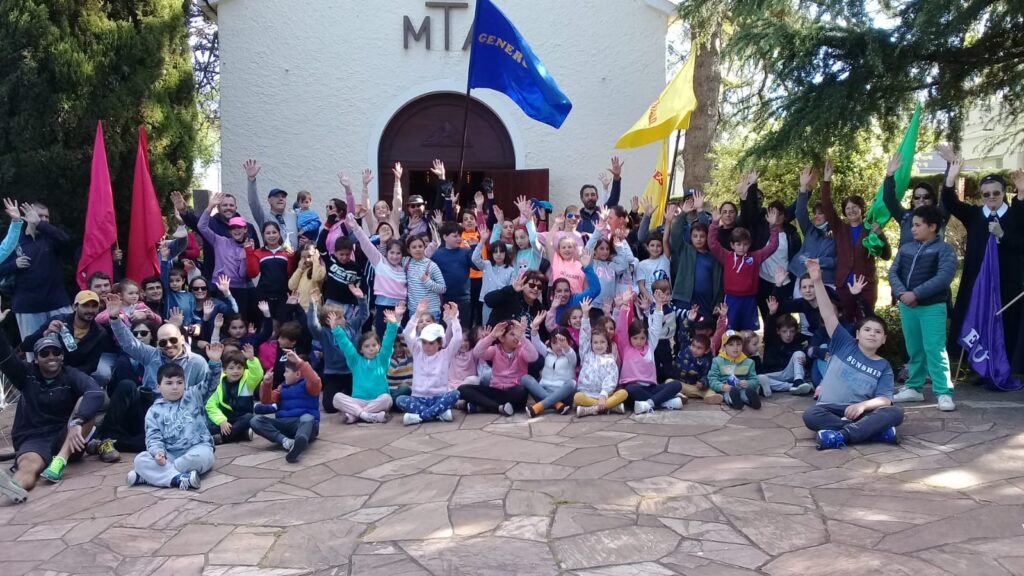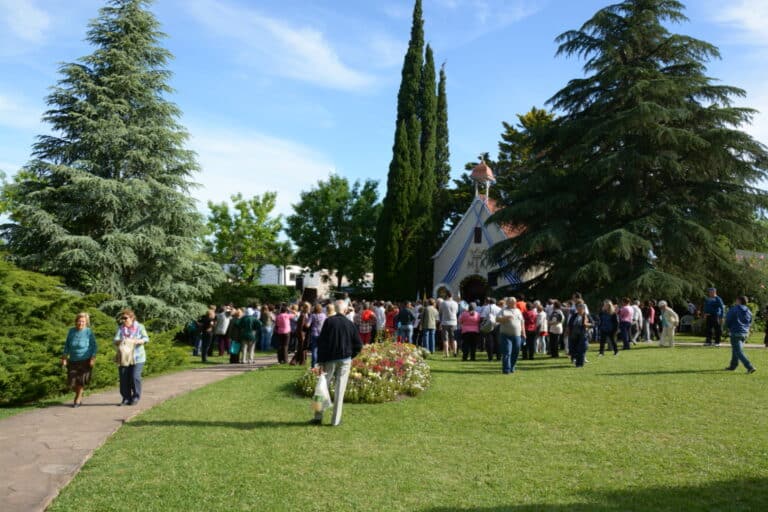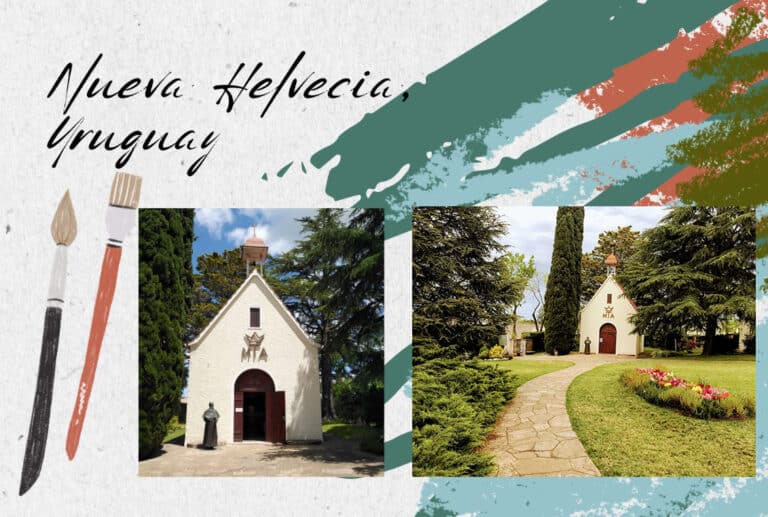In the midst of World War II, the Sisters in New Helvetia, Uruguay, ventured to build the first Schoenstatt Daughter Shrine. They could not consult the leadership of the Community, nor Father Kentenich. They followed the voice within their soul, and the Blessed Mother was able to have her Shrine in Uruguay. When Father Kentenich found out in the concentration camp, he once again confirmed that practical faith in Divine Providence is God’s way.
Boulders along the way can serve as building stones
A handful of missionary Sisters of Mary – most of them under the age of 30 – began founding Schoenstatt in South America. Having left their homeland a few years earlier, they had lost all communication with the Schoenstatt headquarters due to the outbreak of World War II.
They had traveled to the Southern hemisphere a few months after the Nazi party seized power in Germany without any professional training, nor had they been able to learn Spanish before departing. After settling in Argentina in 1935, some of them headed for Uruguay in 1937.
The aim was to announce a brand-new message: the very close presence of Mary, which is almost palpable in the Schoenstatt Shrine, Germany. But, close? 11,000 kilometers away?
This boulder along the way was used as building material. And nothing stopped them.
The decision
The songs that they used to sing in the Original Shrine resounded in the ears of the missionaries. They had been engraved in their souls. One of these songs, referring to Schoenstatt, stated: “There is only one Shrine…”.
Wouldn’t it be disloyal to the origin if they were to build a replica of the original chapel of grace? Wasn’t it a crazy project – and even dishonest – to erect a new structure since they were still in debt because of the beautiful two-story school that had just been built?
It was impossible to consult with the leadership of the community; the war situation prevented it. And even less with the founder, Father Kentenich, who was in the concentration camp.
What future could this missionary work have knowing that Germany was heavily involved in the political conflict and that the founder had fallen into the hands of a government that sought to annihilate the Catholic leaders and that in a document issued from Berlin, had declared Father Kentenich as “enemy number 1 of the State”?
No less worrying was the concern for their own relatives, many of them on the battle front. Since Schoenstatt was recently founded, there were no statutes or constitutions to guide the decision. So what was the element that tipped the needle in the opposite direction?
A practical faith and a high degree of audacity
The voices of God became “loud cries”, in the very limiting situation they were living in.
The voices of the times were growing with the increase in violence, poverty and uncertainty caused by the war in the Northern Hemisphere, but they had a direct impact on the situation of the small community of missionaries.
Their inner voice was telling them that there is no Schoenstatt without a shrine. The voice of their souls always remained silent, in the background, but at the moment of the decision it burst forth with all its strength, a prophetic certainty indicated: God wants this, we must build the shrine here and now.
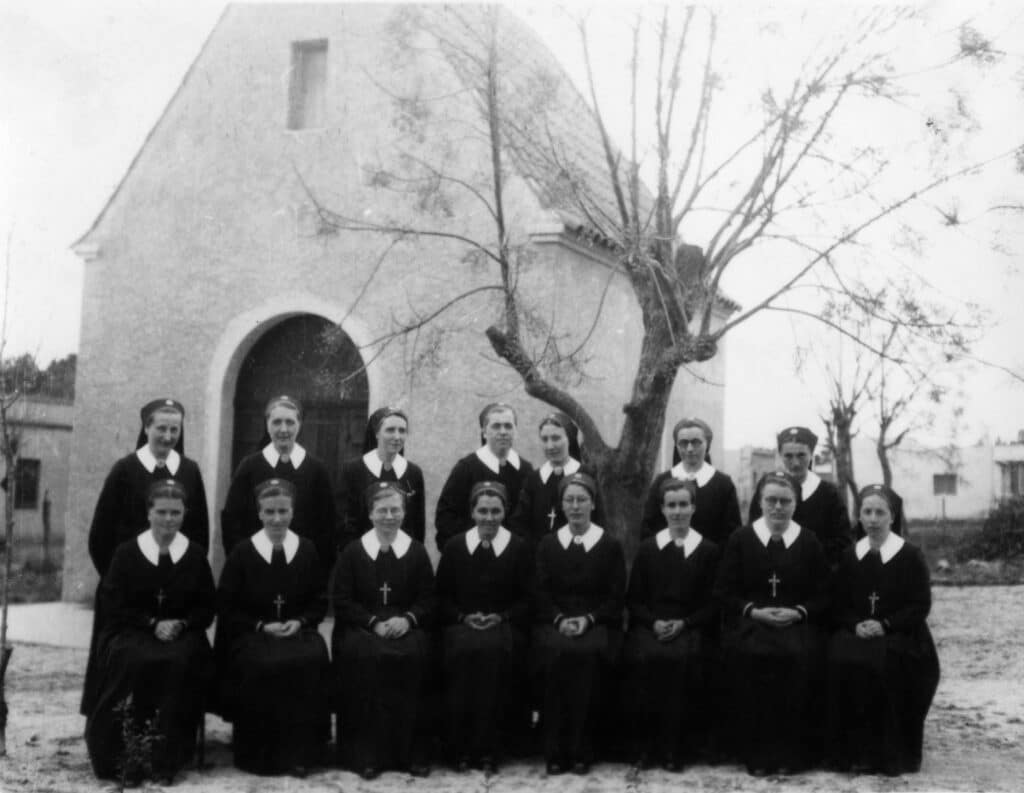
Sister M. Klara Sauter, a key player in the process
Even before leaving for Uruguay in 1938, Sister M. Klara was convinced that a shrine would have to be built in the mission territories. She set her mind on having the rector of the Original Shrine, the only one thus far, Father Kolb, allow her to copy one of the last floor plans of the shrine and to have the sacristan make an exact drawing of the light frame around the image of grace and of the windows. She also acquired a piece of wood from the first altar of the Original Shrine, the few photos of the little chapel that were available at that time, and she took all her treasures to Father Kentenich. He smiled and blessed everything, remaining silent. As in so many other moments, he allowed God’s plans to take their course.
A Shrine especially conquered by the children
Many families from the town sent their children to the Sisters’ school. The importance of the Capital of Grace was given a high priority in the preparatory work for the construction of the Shrine. And it was the children who, day by day, deposited their resolutions, their efforts, and joys in the Shrine’s “piggy bank”.
They also organized raffles, “brick contributions” and together with their families they promoted fundraising activities to complete the project. As Guardians of the Shrine, they prepared to consecrate themselves to Mary as her “Preferred Children”. Insignificance of the instruments… repeating the same laws that characterized the year 1914.
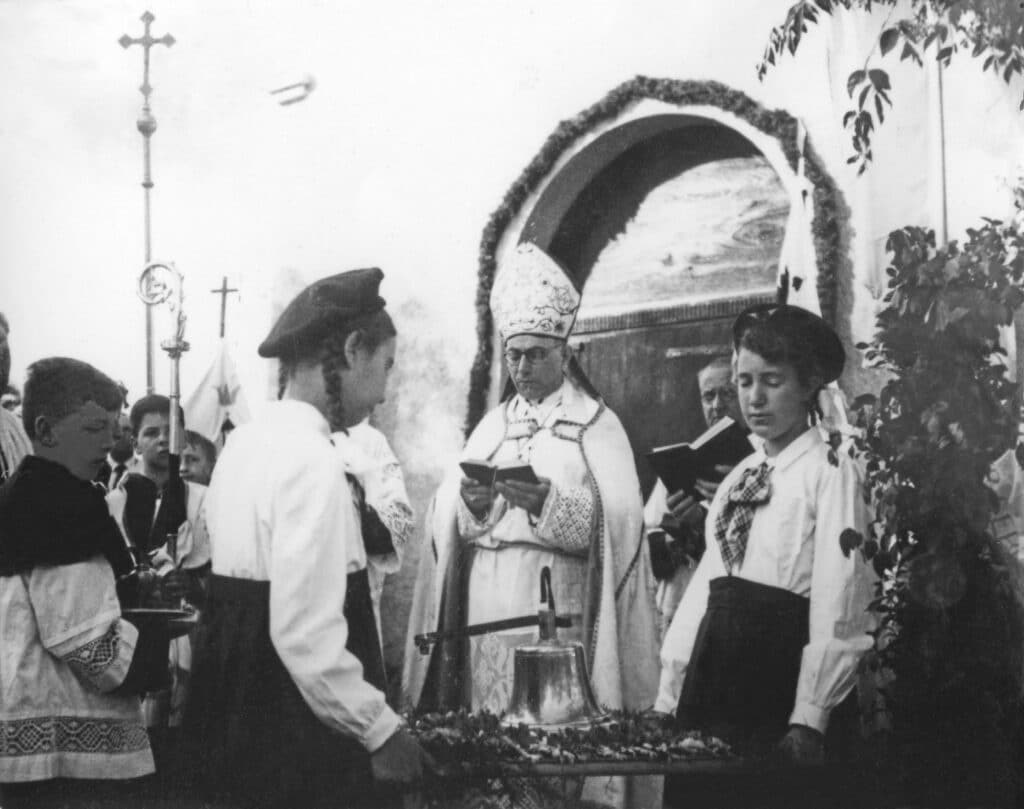
Magnitude of the difficulties
The walls had reached almost a meter in height. But there are no more funds. The floor plan does not indicate where to place the windows. The architect does not know how to design this type of roof, nor how to assemble the bell tower. They only have a large image of the MTA, but it does not match the size they need.
One after another, the difficulties are being overcome. The whole town knows that they must contribute to make this dream come true. Providence does its thing, particularly when a craftsman appears who is willing to mold the altarpiece based on the photos they have.
On the eve of the blessing, they worked tirelessly all night long and so October 18, 1943, began as a symbol of a new dawn for America and for the whole world.
Finally, the Mater ter Admirabilis took her throne and began her educational and evangelizing work. For the first time, the words of the Founding Document resounded in a Shrine outside the Original Shrine! It was not until 1943 that the Founder in Dachau read a report on the construction of the Shrine, and much later his long-awaited message reached the Sisters:
” The news that a new Shrine has been blessed has reached my solitude. May the Mother of God bless all those who will encounter her in this Shrine, may she transform them into new men and women, and may she shelter them warmly in her heart. May she make of all of them fervent apostles who, without faltering, will carry out God’s desires”.
Thus, the magnificent enterprise received his seal of approval. And so, as a vessel that was ready, it could set sail.
Success came, comes and will continue to come
The audacity, the dedication, resulted in echoes in other territories. The second Daughter Shrine was blessed in Brazil in 1948, the third in Chile, the fourth in South Africa, both in 1949. From then on, the Founder repeated over and over again: ” We do nothing without a Shrine”.
Only God can judge the time, the hearts and assess the magnitude of the wonders that have been accomplished. The Blessed Mother is undoubtedly the great Missionary, the great Evangelizer, She never ceases to work miracles.
Our Mother revives our missionary zeal
In the Apostolic Exhortation Evangelii Gaudium, the Holy Father Francis implores Mary to help us “to express our “yes” in the face of the urgent need, more imperative than ever, to make the Good News of Jesus resonate”. May she grant us “the new ardor of the risen, (…) the holy audacity to seek new ways so that the gift of beauty that does not fade may reach everyone”.
This Mother has worked tirelessly for 80 years, since she descended to New Helvetia, Uruguay. Along with her, we also turn our gaze to these daring women, who knew how to capture the whisper of the Spirit and did not cease until they turned their prophetic certainty into reality, promoting, in an original and highly effective way, a new evangelization throughout the world.
